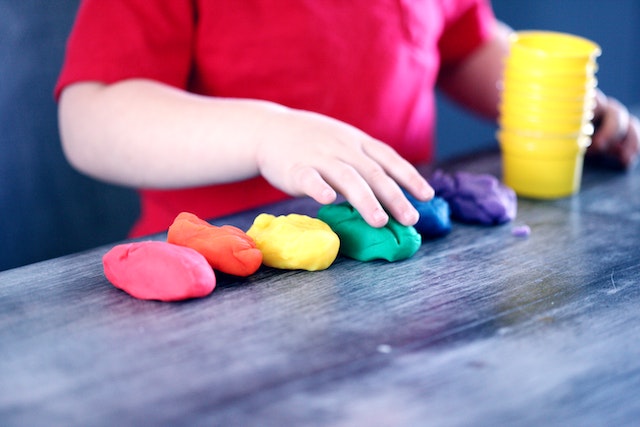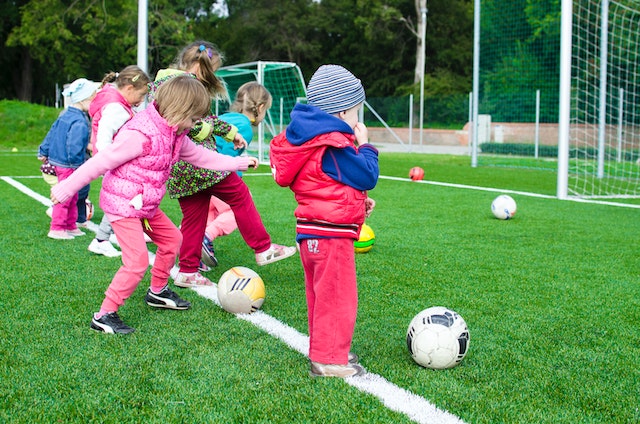Childhood development is a remarkable journey filled with a series of important milestones that pave the way for physical, cognitive, and emotional growth. Two significant categories of development are fine and gross motor skills, which play a crucial role in a child's ability to interact with their environment and learn essential life skills. However, some children may face challenges in achieving these milestones due to sensory processing difficulties. In this article, we explore the significance of fine and gross motor skill milestones and how sensory processing challenges can impact a child's developmental journey.
Fine Motor Skills

Fine motor skills involve the coordination of small muscles, predominantly in the hands and fingers, to perform precise tasks. These skills are essential for self-care activities, such as dressing and feeding, as well as academic tasks like writing and drawing. Here are some common fine motor milestones children typically achieve:
Grasping: Infants begin to grasp objects reflexively, and by three to six months, they start to voluntarily reach and grab objects.
Pincer Grasp: Around 9-12 months, a child typically develops the ability to use their thumb and index finger to pick up small items.
Scribbling: Between 12-18 months, children may start making random marks on paper using crayons or pencils.
Self-Feeding: By 18-24 months, children can often hold a spoon or fork and feed themselves.
Precision Cutting: Around 4-5 years, children may exhibit the ability to use scissors and cut along lines.
Gross Motor Skills

Gross motor skills involve the coordination of larger muscle groups and are essential for activities that require whole-body movements. These skills form the foundation for physical activities such as running, jumping, and balancing. Here are some typical gross motor milestones:
Rolling Over: Infants usually begin rolling over from front to back and vice versa around 4-6 months.
Crawling: Between 6-10 months, babies may begin crawling on their hands and knees or using alternative methods like scooting.
Walking: Most children start furniture walking by 12-15 months and walking independently by 18 months, though this age range can vary widely.
Jumping: Around 2-3 years, children typically learn to jump with both feet off the ground.
Riding a Bike: By 4-6 years, many children can ride a tricycle or a bike with training wheels.
Impact of Sensory Processing Challenges
Sensory processing refers to how the nervous system receives and interprets information from the senses: touch, taste, smell, sight, sound, and movement. Some children may have sensory processing challenges, where their brains have difficulty organizing and responding to this sensory input effectively. These challenges can significantly impact fine and gross motor skill development.
Fine Motor Challenges: Children with sensory processing difficulties may struggle with tasks that require precise hand-eye coordination. For instance, they may find it challenging to hold a pencil correctly, leading to messy handwriting. Difficulties with self-feeding can also arise due to aversions to certain textures or tastes. Children may become frustrated or avoid tasks that involve fine motor skills.
Gross Motor Challenges: Sensory processing challenges can also affect a child's gross motor skills. They might struggle with balance and coordination, making activities like running or climbing more challenging. Difficulty processing movement and spatial awareness can lead to avoiding physical play, impacting their overall physical development.
Emotional Regulation: Sensory processing challenges can also affect a child's emotional regulation. Overstimulation from sensory input may lead to meltdowns or emotional outbursts. Conversely, some children may seek sensory input to calm themselves, leading to impulsive or unsafe behaviors.
Addressing Sensory Processing Challenges
Early identification and intervention are crucial for children facing sensory processing challenges. Occupational therapists are professionals trained to work with children to improve their sensory processing abilities and fine and gross motor skills. Through specialized activities and therapies, they can help children regulate their responses to sensory input, enhance their motor skills, and build confidence in their abilities.
Parents and educators can also play an active role in supporting children with sensory processing challenges. Providing a structured environment, minimizing distractions, and offering sensory-friendly tools can create a more comfortable space for children to explore and develop their motor skills.
Activities that help children regulate responses to sensory input and enhance motor skills can be beneficial for their overall development and well-being. These activities aim to create a sensory-friendly environment while providing opportunities for children to engage their sensory systems in a controlled and structured manner. Here are some examples of such activities:
Sensory Bins: Create sensory bins filled with different textures like rice, beans, sand, or water. Encourage children to explore and manipulate the materials with their hands, promoting fine motor skills and sensory integration.
Calm Down Corner: Designate a quiet space where children can go to self-regulate when feeling overwhelmed. Offer sensory tools like stress balls, fidget toys, or weighted blankets to provide comfort and relaxation.
Body Brushes: Use soft body brushes to provide deep pressure touch to children's arms, legs, and back. This can help with sensory processing and body awareness.
Music and Movement: Play calming or upbeat music and encourage children to move their bodies to the rhythm. Dancing, marching, or doing yoga poses can improve gross motor skills and self-expression.
Obstacle Courses: Set up indoor or outdoor obstacle courses that incorporate a variety of sensory experiences, such as crawling through tunnels, jumping over pillows, or balancing on beams.
Bubble Play: Blow bubbles and encourage children to pop them using their fingers or catch them in the air. This activity enhances visual tracking, hand-eye coordination, and finger dexterity.
Play with Theraputty or Silly Putty: Theraputty or Silly Putty can be used to strengthen hand muscles and improve fine motor skills. Children can squeeze, pinch, and stretch the putty in various ways.
Sensory Walks: Take children on nature walks and encourage them to touch, smell, and observe different natural elements like leaves, flowers, and rocks.
Trampoline Activities: Jumping on a trampoline can provide proprioceptive input and improve overall body coordination and balance.
Tactile Play: Set up play stations with materials like finger paints, shaving cream, or kinetic sand, allowing children to explore and create with their hands.
It's essential to tailor these activities to the child's individual needs and preferences. Always observe their responses and adjust the level of sensory input accordingly. For children with sensory processing challenges, consistency and repetition in these activities can be particularly beneficial as they become more comfortable with sensory stimuli over time. If needed, consulting with an occupational therapist can help identify specific activities that align with a child's sensory processing profile and motor skill goals.
Conclusion
Fine and gross motor skills are fundamental building blocks in a child's development, enabling them to interact with their environment and learn new skills. However, some children may encounter challenges in achieving these milestones due to sensory processing difficulties. Recognizing and addressing these challenges early on can significantly impact a child's developmental journey, allowing them to reach their full potential and thrive in various aspects of life. With proper support and intervention, children can overcome sensory processing challenges and flourish in their physical and emotional growth.

1801 E 2nd St.
Scotch Plains, NJ 07076
Serving Westfield, Cranford, Berkeley Heights, Watchung, New Providence, and Summit